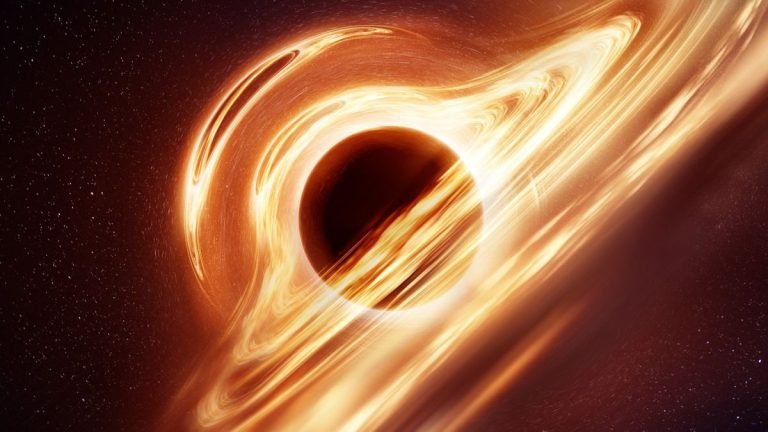Introduction to Black Holes
A black hole is one of the most captivating and mysterious objects in the universe. Formed from the collapse of massive stars, these cosmic giants are known for their intense gravitational pull. This force is so strong that not even light can escape it, making black holes appear completely black. But what exactly is a black hole, and how does it work? Let’s dive in to understand more about these fascinating space phenomena.
How Do Black Holes Form?
When a star much larger than our Sun runs out of fuel, it starts collapsing inward due to its own gravity. This collapse leads to the formation of a black hole, which creates a “pit” in space. Imagine space as a stretched rubber sheet: placing a heavy object like a black hole on it would cause a deep pit. Everything that comes too close to this pit falls in and gets trapped forever.
The Event Horizon: The Point of No Return
The event horizon is the invisible boundary around a black hole. It acts like the edge of a waterfall—once something crosses this line, there’s no coming back. The gravitational pull beyond the event horizon is so strong that even light cannot escape, making it impossible to see what’s inside.
Misconceptions: Do Black Holes Suck Everything In?
Contrary to what many people believe, black holes don’t go around gobbling up everything in their path. Objects, including planets and stars, can orbit a black hole safely if they maintain a certain distance. It’s only when something crosses the event horizon that it’s pulled in and trapped forever.
How Do Scientists Study Black Holes?
Since black holes don’t emit light, scientists study them by observing the behavior of nearby objects. For instance, they look at how stars and gas clouds move around the black hole. In 2019, astronomers captured the first-ever image of a black hole’s shadow, surrounded by a glowing ring of light, which was a major breakthrough in space exploration.
Read This Also: Earth’s Temporary Second Moon
Why are Black Holes Important for Science?
Black holes are not just fascinating—they play a crucial role in helping scientists understand the universe. Studying them can reveal new insights into the nature of gravity, space, and time. Researchers believe that understanding black holes could even lead to discoveries about the origins of our universe.
Conclusion
In summary, a black hole is a massive space object that forms when a large star collapses. Its gravitational pull is so strong that once something gets too close, it can never escape. Scientists continue to study black holes to unlock the mysteries of space and time, making them a key subject in astronomy.
You can read more about black hole on Nasa website.




